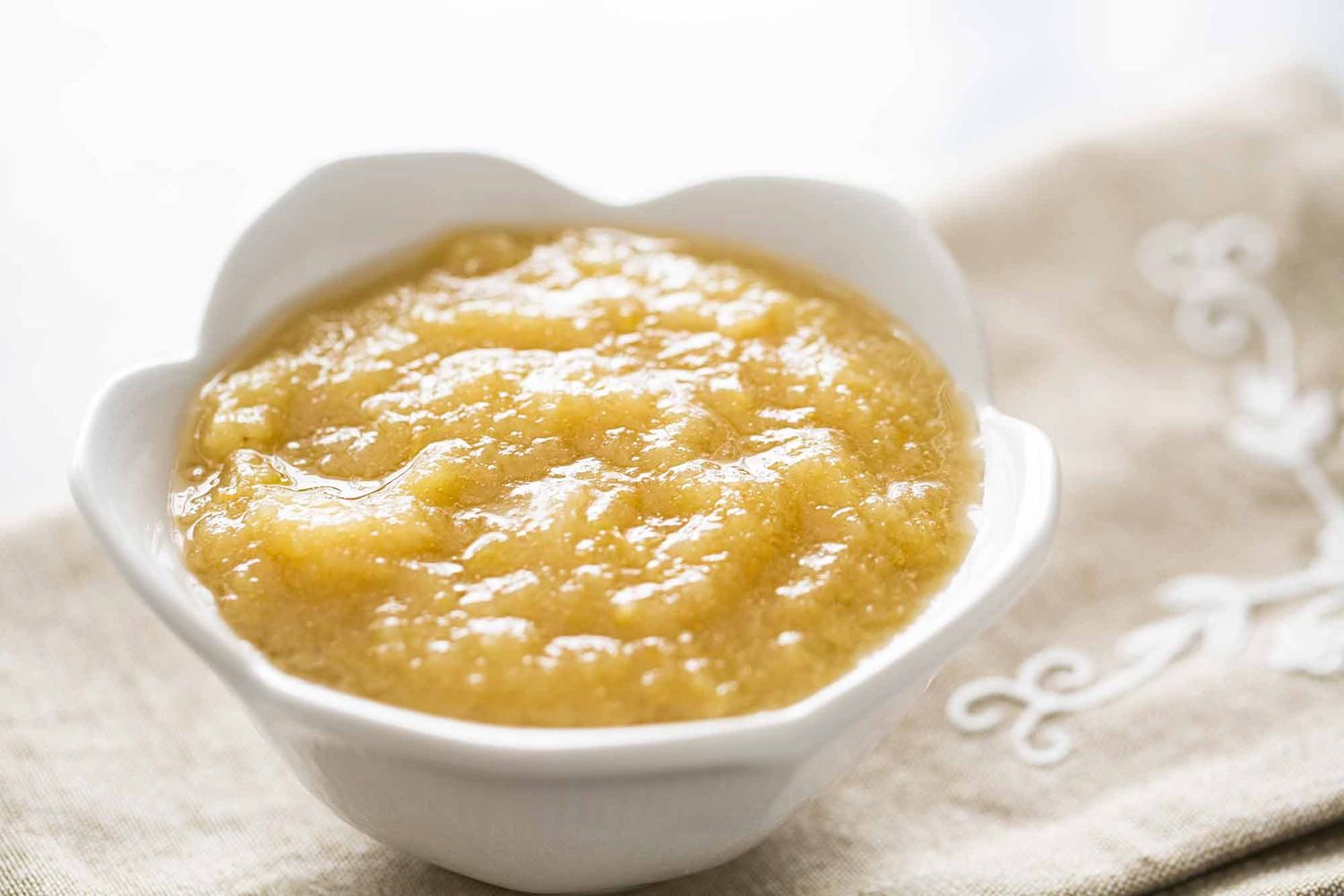Welcome back to another intriguing exploration at TheKitchenApplianceDad.com, where we dive deep into the kitchen queries that keep you pondering at the pantry. Today, we’re spooning through a common question: Does applesauce need to be refrigerated? Whether you’re a homemade applesauce aficionado or a store-bought supporter, understanding how to store your applesauce is key to maintaining its freshness and flavor.
Understanding Applesauce Storage
Applesauce, a beloved side dish and snack made primarily of cooked-down apples, varies in its storage needs based on several factors including ingredients, packaging, and whether it’s been opened. Let’s break it down:
Unopened Applesauce
Store-Bought Applesauce:
Commercially packaged applesauce is typically pasteurized, meaning it has been heated to a temperature that kills bacteria. This process extends its shelf life. Unopened, store-bought applesauce can generally be stored in a cool, dry place such as a pantry or cupboard. This type of applesauce usually has a best-by date printed on the packaging, which is a good indicator of how long it can be stored unrefrigerated. However, once this date has passed, or if you notice any signs of spoilage such as an off smell or appearance, it’s best to discard it.
Homemade Applesauce:
Homemade applesauce, lacking commercial preservatives and not typically pasteurized, has a shorter shelf life and should be refrigerated right after it cools down post-cooking. If you’re planning to store it longer, freezing is a viable option.
Opened Applesauce
Once you open a jar of applesauce, whether store-bought or homemade, the storage game changes. Exposure to air can introduce bacteria and yeast, which can lead to spoilage. Here’s what you need to do:
- Refrigeration is Crucial:
Once opened, applesauce needs to be refrigerated. Store it in the refrigerator in its original jar with the lid tightly closed, or transfer it to an airtight container. This helps to maintain its freshness and prevent contamination. - Keep an Eye on the Clock:
Generally, opened applesauce should be consumed within 7 to 10 days when kept in the refrigerator. If you can’t remember when you opened it, it’s safer to err on the side of caution and throw it away if it’s been in the fridge for longer than two weeks.
Best Practices for Storing Applesauce
To maximize the shelf life and quality of your applesauce, whether homemade or store-bought, follow these tips:
- Cool It Down:
For homemade applesauce, allow it to cool completely before refrigerating. This prevents condensation within the container, which could lead to spoilage. - Use Clean Utensils:
Always use a clean spoon when serving applesauce, especially if you’re returning any unused portion to the refrigerator. This prevents the introduction of bacteria from your mouth or other foods. - Store Properly:
Whether in the pantry or fridge, ensure that the applesauce is kept in a cool, dry place away from direct sunlight or heat sources. High temperatures can accelerate spoilage. - Freezing for Longevity:
If you have made a large batch of homemade applesauce or have more than you can consume in a short period, consider freezing it. Frozen applesauce can last for up to a year. Thaw it in the refrigerator overnight before use.
Signs of Spoilage in Applesauce
Knowing when your applesauce has gone bad is crucial to prevent foodborne illness. Here are a few indicators that your applesauce should be discarded:
- Off Smell or Taste:
If your applesauce smells fermented or has an unusual taste, it’s best to throw it away. - Mold Growth:
Any signs of mold or yeast growth, which can appear as fuzzy or slimy spots, mean that the applesauce should not be consumed. - Change in Color:
While some color change can be normal due to oxidation, a significant alteration in color might indicate spoilage. - Packing Expansion:
If an unopened jar or pouch of applesauce appears swollen or bloated, this could be a sign of gas produced by bacteria growth. Do not consume it.
Key Takeaways
- Storage Needs Vary:
Unopened store-bought applesauce can be stored in the pantry, but it must be refrigerated after opening. - Homemade Must Be Refrigerated:
Homemade applesauce lacks preservatives and must be refrigerated or frozen immediately after cooling. - Watch for Spoilage:
Be vigilant about spoilage signs such as off smells, mold, and color changes. - Use Within Recommended Time:
Consume opened applesauce within 7 to 10 days, and remember to use clean utensils to avoid contamination.
By adhering to these guidelines, you can enjoy your applesauce in its best form, whether as a delightful topping, a mix-in for your morning yogurt, or simply by the spoonful. Applesauce is a versatile and healthy addition to your diet, but like all food products, proper storage is key to ensuring its safety and preserving its quality. So next time you whip up or crack open a jar of applesauce, remember these storage tips from TheKitchenApplianceDad.com to keep it delicious and safe!

